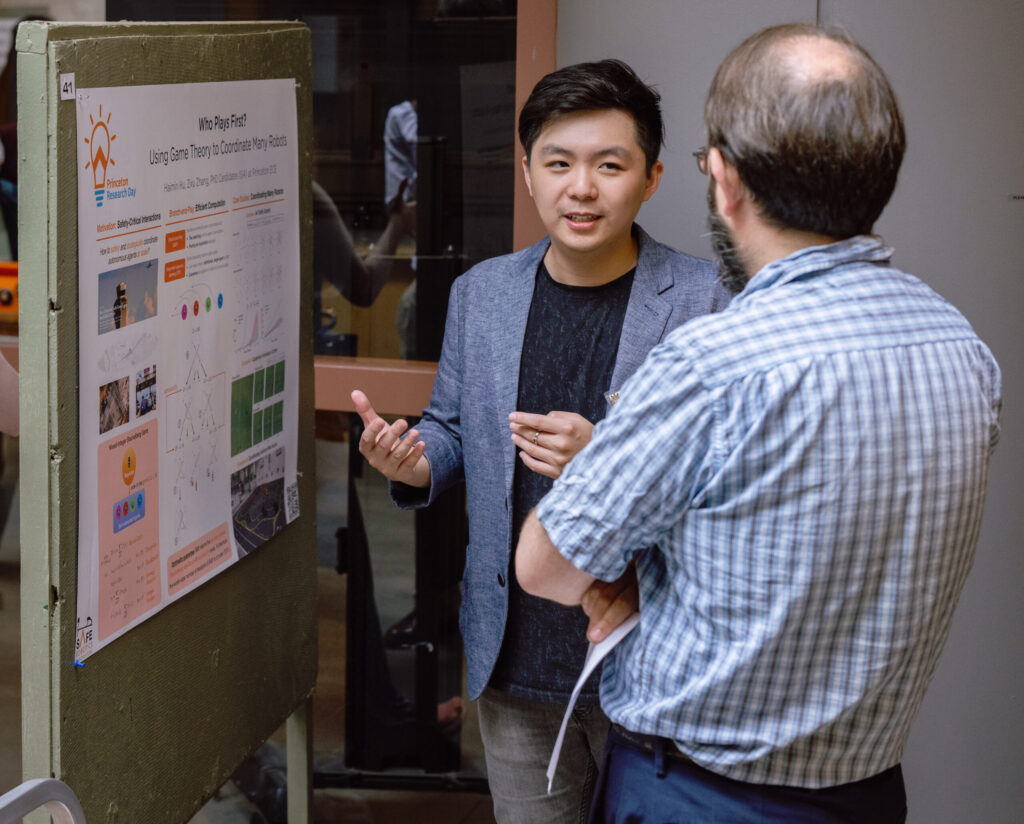Interview with Haimin Hu: Game-theoretic integration of safety, interaction and learning for human-centered autonomy - Robohub

Source: robohub
Published: 8/21/2025
To read the full content, please visit the original article.
Read original articleIn this interview, Haimin Hu discusses his PhD research at Princeton Safe Robotics Lab, which centers on the algorithmic foundations of human-centered autonomy. His work integrates dynamic game theory, machine learning, and safety-critical control to develop autonomous systems—such as self-driving cars, drones, and quadrupedal robots—that are safe, reliable, and adaptable in human-populated environments. A key innovation is a unified game-theoretic framework that enables robots to plan motion by considering both physical and informational states, allowing them to interact safely with humans, adapt to their preferences, and even assist in skill refinement. His contributions span trustworthy human-robot interaction through real-time learning to reduce uncertainty, verifiable neural safety analysis for complex robotic systems, and scalable game-theoretic planning under uncertainty.
Hu highlights the challenge of defining safety in human-robot interaction, emphasizing that statistical safety metrics alone are insufficient for trustworthy deployment. He argues for robust safety guarantees comparable to those in critical infrastructure, combined with runtime learning
Tags
robothuman-robot-interactionautonomous-systemssafety-critical-controlgame-theorymachine-learningautonomous-vehicles